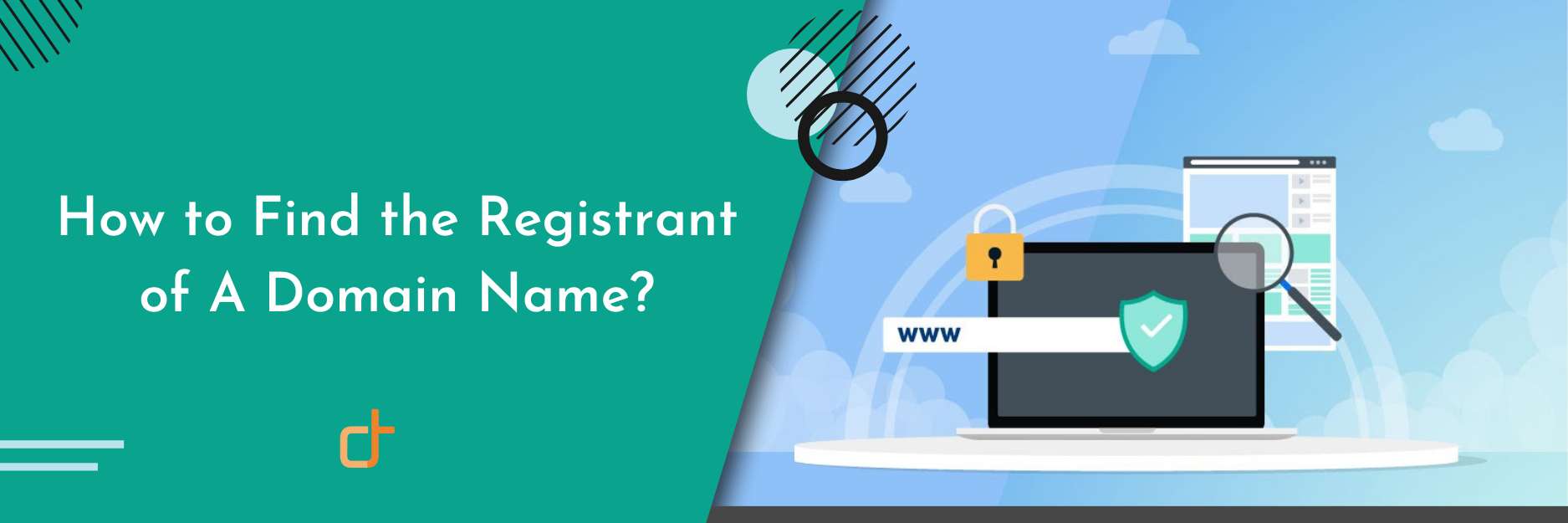In the ever-evolving world of the internet, domain names play a crucial role in creating and maintaining an online presence. This guide will answer the top 20 most frequently asked questions about domain name registration in 2023, helping newcomers navigate the process with ease.
What is a domain name?

A domain name is a unique, human-readable web address that represents a website on the internet. It serves as an easy-to-remember identifier that allows users to find and access your website quickly. Domain names are an essential component of the internet’s addressing system and consist of a series of characters separated by periods (e.g., example.com).
A domain name is composed of two main parts:
- Second-Level Domain (SLD): The main part of the domain name, which is unique to your website. In “example.com,” “example” is the second-level domain.
- Top-Level Domain (TLD): The extension that follows the second-level domain. In “example.com,” “.com” is the top-level domain. Other common TLDs include .org, .net, and .edu.
Domain names are registered and managed by domain registrars, which are companies accredited to sell and manage domain names on behalf of the domain name registry. When you register a domain name, you reserve the exclusive right to use that specific web address for the duration of your registration period.
Once your domain is registered you can use it for managing your website, email accounts, databases and file servers and host with a dedicated server India provider.
How to check domain name registration?
To check the registration and availability of a domain name, follow these steps:
- Visit a domain registrar’s website or a domain name search tool.
- Locate the domain search bar or the domain availability checker tool on the website.
- Enter your desired domain name, including the top-level domain (TLD), e.g., “example.com,” and hit “Search” or “Check Availability.”
- The tool will show you if the domain name is available for registration. If the domain is already registered, it will display alternative suggestions or allow you to try a different TLD or domain name.
Domain names are registered and managed by domain registrars, which are companies accredited to sell and manage domain names on behalf of the domain name registry. When you register a domain name, you reserve the exclusive right to use that specific web address for the duration of your registration period.
How to find the registrant of a domain name?

To find the registrant of a domain name, you can perform a WHOIS lookup. WHOIS is a publicly accessible database containing contact information for domain name registrants. Here’s how to perform a WHOIS lookup:
- Visit a WHOIS lookup tool: There are several online tools that offer WHOIS lookup services. Some popular ones include:
- Enter the domain name: In the search bar provided by the WHOIS lookup tool, type the domain name you want to look up, including the top-level domain (e.g., example.com), and press Enter or click the search button.
- Review the results: The WHOIS lookup tool will display the available registrant information for the domain name. This may include the registrant’s name, organization, mailing address, email address, phone number, and the domain’s registration and expiration dates.
Keep in mind that if the domain owner has opted for private registration or WHOIS privacy, their personal information may be hidden or replaced with the domain registrar’s or a proxy service’s contact information. In such cases, you might not be able to directly view the registrant’s information. If you need to contact the domain owner, you can try reaching out through the provided proxy email address or contact the domain registrar to request assistance.
How to renew domain name registration?

To renew your domain name registration, follow these general steps:
|
Please note that the exact process for renewing a domain may vary slightly depending on your domain registrar. If you have any difficulties or need further assistance, contact your domain registrar’s customer support for help.
What is domain name search engine registration?
The term “domain name search engine registration” is an outdated and misleading concept. It refers to the practice of manually submitting a website to search engines for indexing, which was more common in the early days of the internet. Today, this practice is unnecessary, as modern search engines like Google, Bing, and Yahoo automatically discover, crawl, and index new websites without requiring any registration.
Instead of worrying about “search engine registration,” focus on optimizing your website for search engines through Search Engine Optimization (SEO). SEO involves creating high-quality, relevant content, ensuring your website is technically sound and building a good user experience. This will help your website rank higher in search results and attract more organic traffic.
How does domain name registration work?
Domain name registration is the process of reserving a unique web address (domain name) for your website on the internet. Here’s an overview of how domain name registration works:
|
Your domain name registration will remain active for the duration of your chosen registration period, which can be one to ten years. You’ll need to renew your registration before it expires to maintain ownership and ensure your website remains accessible.
Can I change my domain name after registering?

Once you’ve registered a domain name, you cannot directly modify or change it. However, if you want to use a different domain name for your website, you can follow these steps:
|
Remember, changing your domain name can impact your website’s SEO and brand recognition, so it’s essential to carefully plan and execute the transition.
Do I need private registration for a domain name?
Private registration, also known as domain privacy or WHOIS privacy, is an optional service offered by many domain registrars. It protects your personal information from being publicly displayed in the WHOIS database, which is a publicly accessible directory of the domain name registrant’s contact information.
Here are some factors to consider when deciding whether you need private registration for your domain name:
|
In summary, private registration can be beneficial if you want to protect your personal information from being publicly accessible. However, it’s not mandatory, and you should consider your specific circumstances and preferences before deciding if it’s the right option for you.
What are domain name registration and hosting?
Domain name registration and hosting are two separate but essential services for creating and maintaining a website. Here’s a brief explanation of both:
Domain name registration:
- Domain name registration is the process of reserving a unique web address (domain name) for your website on the internet. This ensures that no one else can use the same domain name as long as your registration is active. Domain names are managed by domain registrars, which are companies accredited to sell and manage domain names on behalf of the domain name registry.
Examples of domain registrars include GoDaddy, Namecheap, and Google Domains. When you register a domain name, you’ll need to choose a top-level domain (TLD) like .com, .org, or .net. The cost of domain registration varies depending on the TLD and registrar you choose, and registrations typically last for one to ten years.
Web hosting:
- Web hosting is the service that provides space on a server to store your website’s files and data. Hosting providers are responsible for ensuring your website is accessible on the internet and providing the necessary resources, such as storage, bandwidth, and technical support.
There are different types of web hosting available Shared hosting including Linux hosting and Windows hosting, Virtual private servers (VPS) including Managed Linux VPS hosting and Windows VPS, Indian Server hosting and cloud hosting. The hosting you choose depends on your website’s needs, such as the expected traffic, storage requirements, and performance.
In summary, domain name registration gives you the right to use a unique web address for your website, while web hosting provides the server space and resources required for your website to be accessible on the internet. Both services are necessary to create and maintain a functional website.
How to get free domain name registration?

Free domain name registration is usually available as part of a promotion or bundled with other services, such as web hosting. Here are a few ways you can get a free domain name registration:
|
When seeking free domain name registration, be sure to read the terms and conditions, as there might be restrictions or additional costs for domain renewal, transfer, or other services. Additionally, consider the long-term costs and the reputation of the service provider to ensure you’re making a wise decision for your website.
How to cancel domain name registration?
To cancel a domain name registration, follow these steps:
|
Remember that canceling a domain registration may vary slightly depending on the registrar. If you’re unsure about the cancellation process, it’s always best to contact the registrar’s customer support team for assistance.
Do hosting companies offer domain name registration?
Yes, many hosting companies offer domain name registration services as part of their packages or as an additional service. Some hosting providers even include a free domain name registration for the first year when you sign up for their hosting plans.
Our Web Hosting Mumbai service allows you to book a domain name with the hosting services which you opt for.
What happens to my domain name once its registration expires?

When a domain name registration expires, it goes through several stages before becoming available for registration again. Here’s an overview of the process:
|
To avoid losing your domain name after expiration, ensure that you renew it on time. You can also enable auto-renewal in your domain registrar account to automate the renewal process and avoid accidental expiration.
Register Domain Name – Concluding Points
In conclusion, register domain in India is a crucial step in establishing your online presence. By understanding the ins and outs of domain registration, you can make informed decisions regarding domain availability, registration processes, renewal, and privacy. Keep in mind that selecting the right domain registrar is essential for ensuring a smooth and hassle-free experience.
Diadem Technologies stands out as a reliable and customer-focused domain registrar. With our competitive pricing, exceptional support, and user-friendly domain management interface, you can be confident that your domain registration and management needs are in good hands.
Diadem Technologies offers a wide range of TLDs, making it easy to find the perfect domain for your business or project.
Additionally, Diadem Technologies provides other valuable services, such as email hosting including Zimbra mail hosting and web hosting services based in Mumbai & Kolkata, get the best web hosting service Kolkata from Diadem Technologies which makes them a one-stop solution for all your online presence requirements. With our commitment to customer satisfaction, you can trust Diadem Technologies to be your go-to domain registration provider for your next domain.
Choose Diadem Technologies and secure your online presence with confidence and ease.


































